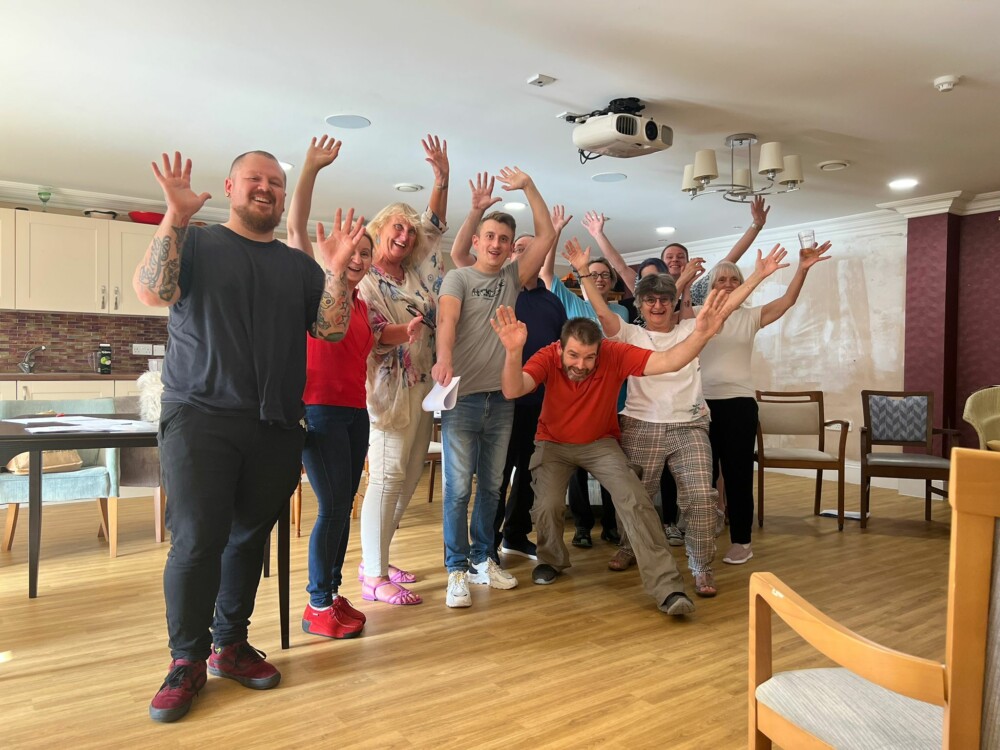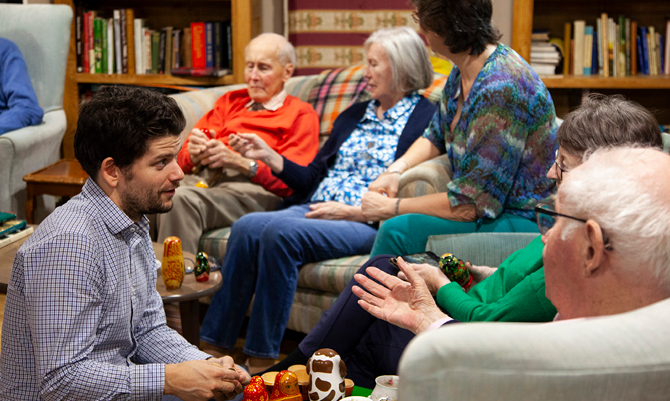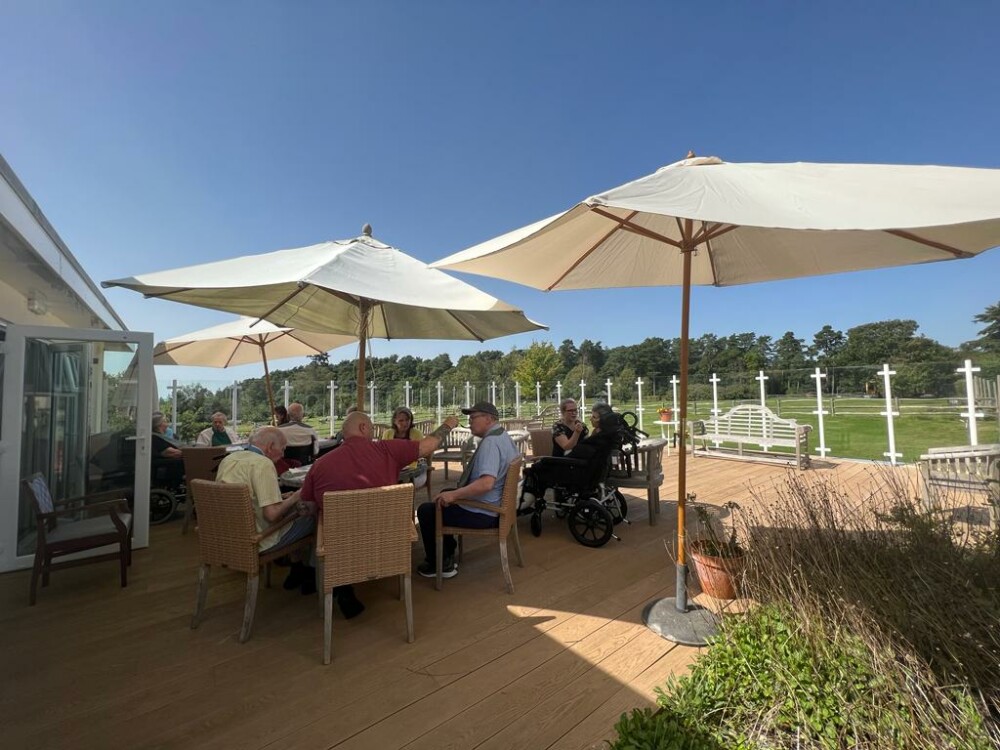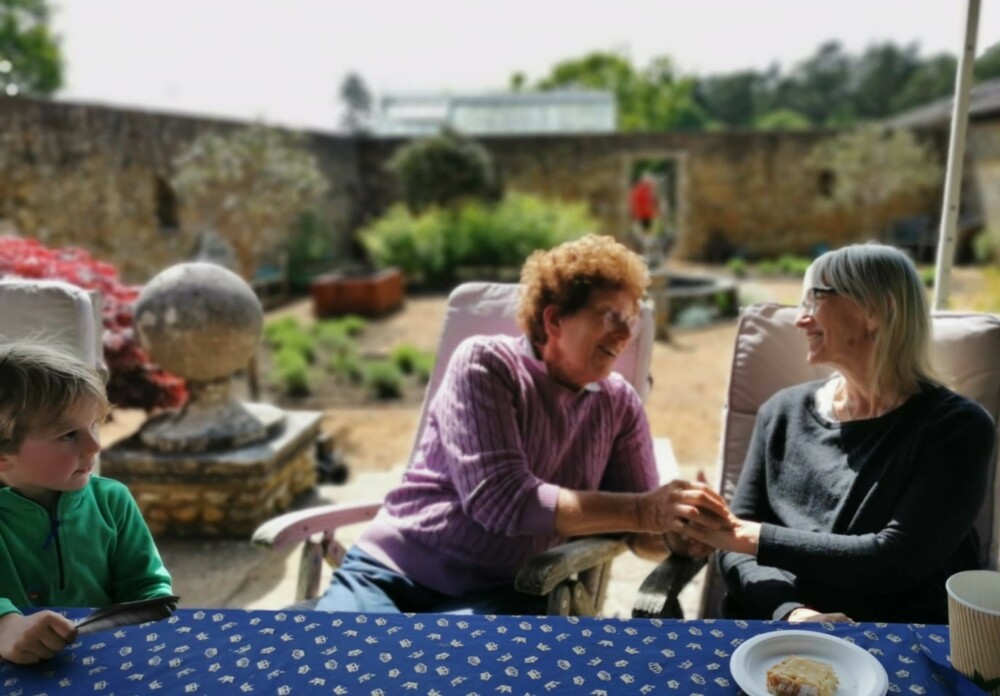Here at the Huntington & Langham Estate, we offer the very highest level of thoughtful and personalised care for people living with all types of Dementia
Our sterling reputation has been established over many years, and we’re now privileged to welcome people to our family who have been referred from the NHS and from other homes who can no longer support their specialist needs.
Amongst our residents, we care for people who have rare forms of dementia, as well as those whose symptoms have progressed and who are not able to stay in their existing residential homes without heavy medication.
What is dementia?
The word ‘dementia’ describes a group of symptoms caused by different diseases that damage the nerve cells in the brain. The symptoms worsen over time and can affect memory, problem-solving, language and behaviour.
As dementia is caused by different diseases, there are different types of dementia. The most common is Alzheimer’s disease, followed by Vascular Dementia, Dementia with Lewy bodies and Frontotemporal dementia, sometimes called Pick’s disease.
Less well known are the seven rarer types of dementia, including PDA, PPA and FAD, all of which can occur at a younger age, can be wrongly diagnosed and can lead to issues accessing support from the usual existing health, social and voluntary services.
Between 5% and 15% of people living with dementia have been diagnosed with a rare, inherited or young- onset dementia.
We’re invested in learning more about dementia
Recently, all our staff have undergone training by the Rare Dementia Support Society.

We learned about all the rarer forms of dementia and how they affect people. This is vital as sometimes, when there’s a decline in cognition, we don’t know the type of dementia a person may have, especially if they can no longer have an MRI.
Now, with our staff’s insight, we can work backwards from behaviour and symptoms to diagnosis, meaning residents get the specialist care, understanding and flexibility they need.
Visit us, and you’ll quickly see that our informed and adaptable approach means we can be a home for anyone with any form of dementia. For example, we’ve welcomed people of a young age living with YOAD dementia who have school-age families, so their needs are very different to those in their 70s+.
At our Estate, the care your loved one will receive is often beyond that found elsewhere.
We go beyond “dementia friendly”
The care we provide is very personalised, thoughtful and caring. We see how people behave and react and adapt our approach or environment to them rather than expecting them to conform to our rules.
We know that people living with rare dementia can present in different ways, and this means we can offer personalised care. For example, one resident came to us with dementia and wanted to stay in his room over mealtimes. His dementia was not far progressed, and he was very independent, but he struggled with breakfast and lunchtime in this space.
Having learned about the symptoms associated with PCP dementia – a rare form of dementia where there’s a sensitivity to light – we gave him a pair of sunglasses, and he was happy to eat and socialise in the dining room. He might have been labelled as “not sociable” in another home and left to eat in his room.

We’re all part of a community
At the Langham Estate, we’re part of a community. There’s no delineation between people living with us and working with us. There’s no Us and Them. We encourage residents to contribute to the life of the home however they can. Some like laying the table for a meal. Others like caring for our carers by, for example, brushing and styling their hair.
We know all our residents have value and want to feel in control. In our flexible and timetable-free environment, that means people can feel freer, and, in turn, this means that challenging behaviour is kept to a bare minimum.
Here’s a story which exemplifies our attitude to positive risk:
A resident with dementia who had previously escaped from two other care homes told us he wanted to find weak spots in our security at Langham Court and explore the surroundings. Instead of scolding him, we allowed him to act out his plans, safe in the knowledge that he couldn’t come to any harm on our large Estate.
Everyone finds their sense of purpose in different ways, and his was to find a way out – and we did not want to deprive him of this. It is a matter of balancing wellbeing and illbeing; a risk assessment of sorts, evaluating the likelihood and severity of potential outcomes of either allowing or disallowing a certain activity.
Over many weeks, he tried various escape plans, occasionally being allowed to succeed. We always found him and brought him back. Surprisingly, he was always happy to return in the knowledge that he had achieved with what he had set out to do.

How did we manage this? Well, to preserve his pride and independence, we discreetly hid a GPS tracker into his jacket and shoes. This allowed us to keep an eye on him without damaging his sense of self. By finding this balance between safety and his desire for adventure, we ensured his wellbeing while respecting his autonomy.
Our unique approach is beloved by residents and their families
Caring for a loved one with dementia can be rewarding and draining. You might want them to move to a residential home but feel guilty about how this will impact them and you.
In these cases, we often recommend bringing your loved one for a respite stay – a short break for them and you. You can relax knowing they are lovingly supported by genuinely caring people. This can also make it easier for you and your loved one if there’s a move to full-time residential care in the future.
At the Huntington & Langham Estate, we provide luxury care across our two specialist care homes.
Family-owned and run, we offer dignified, compassionate and personalised care to our residents, giving them the nurturing support they need to continue living full, independent and meaningful lives.
We are Butterfly and Dragonfly accredited. To arrange a visit to the Estate and tour our homes and grounds, please call 01428 604 600 or complete this form.

